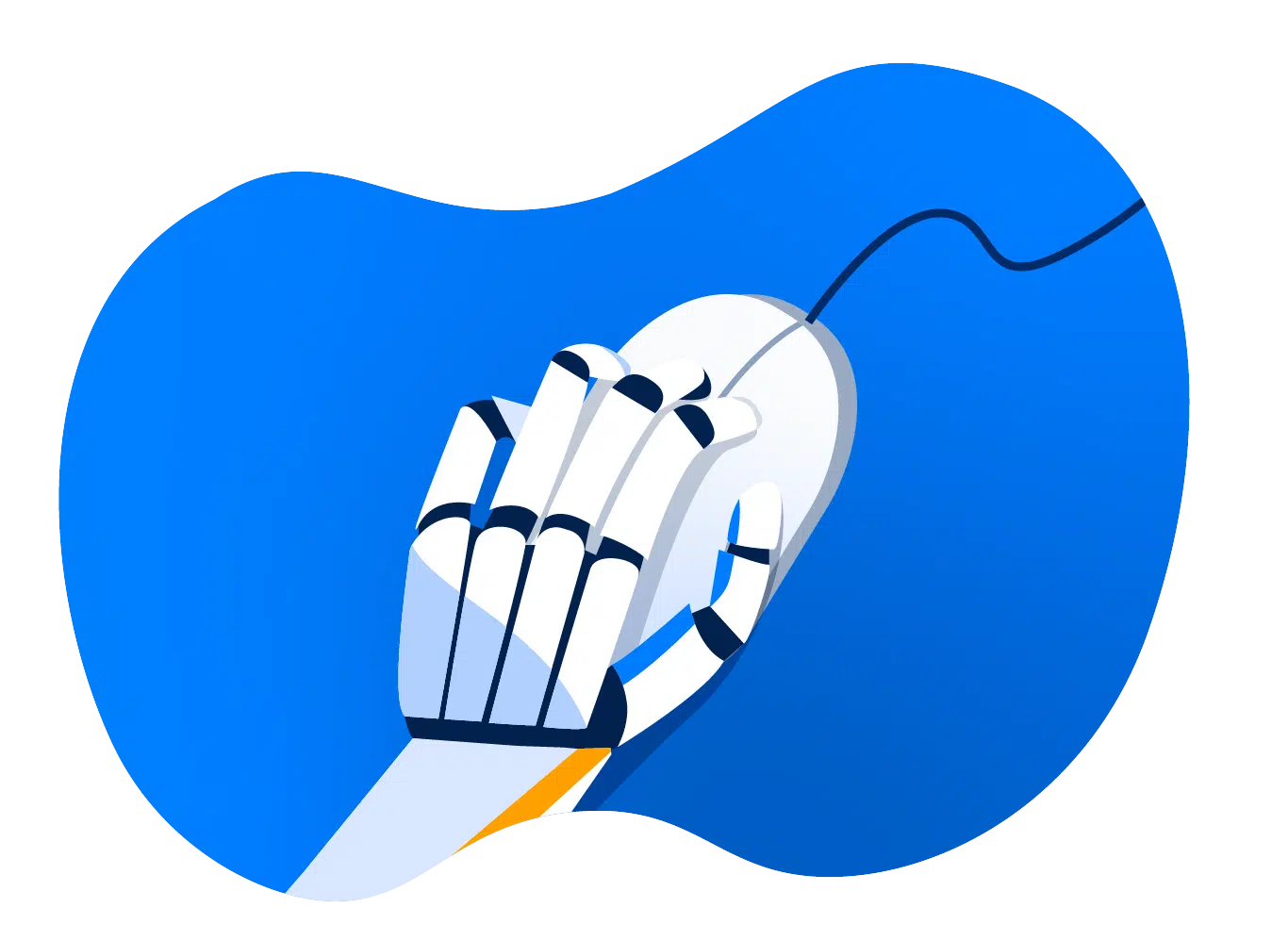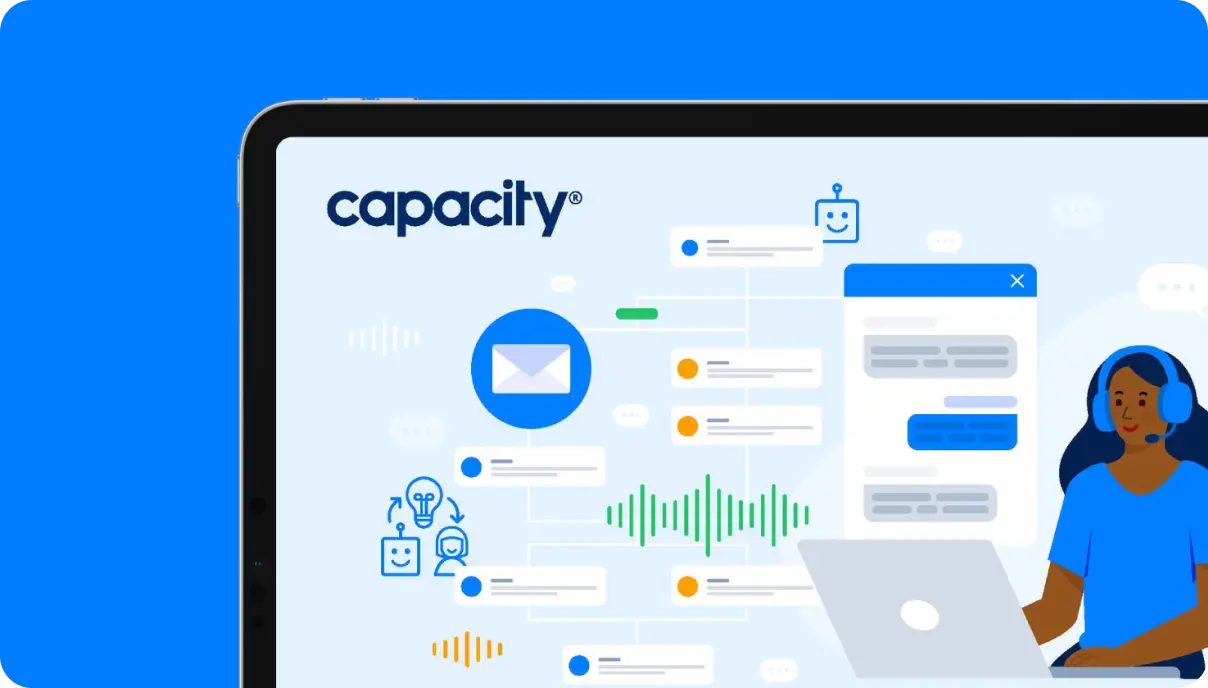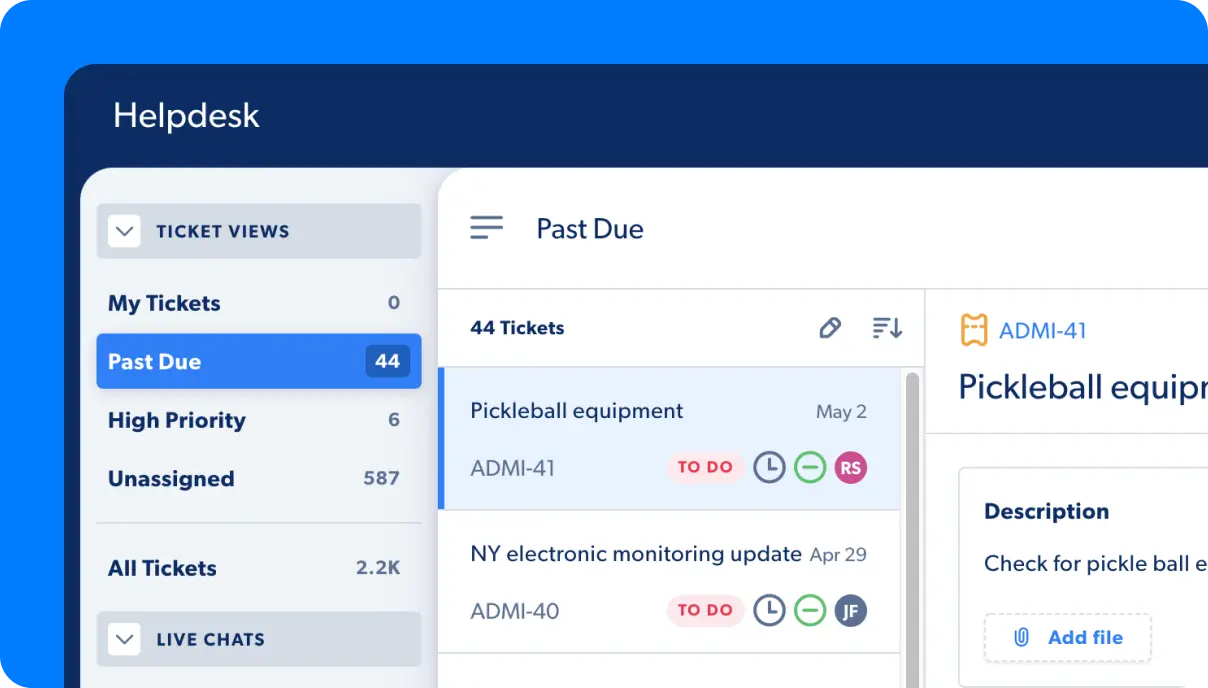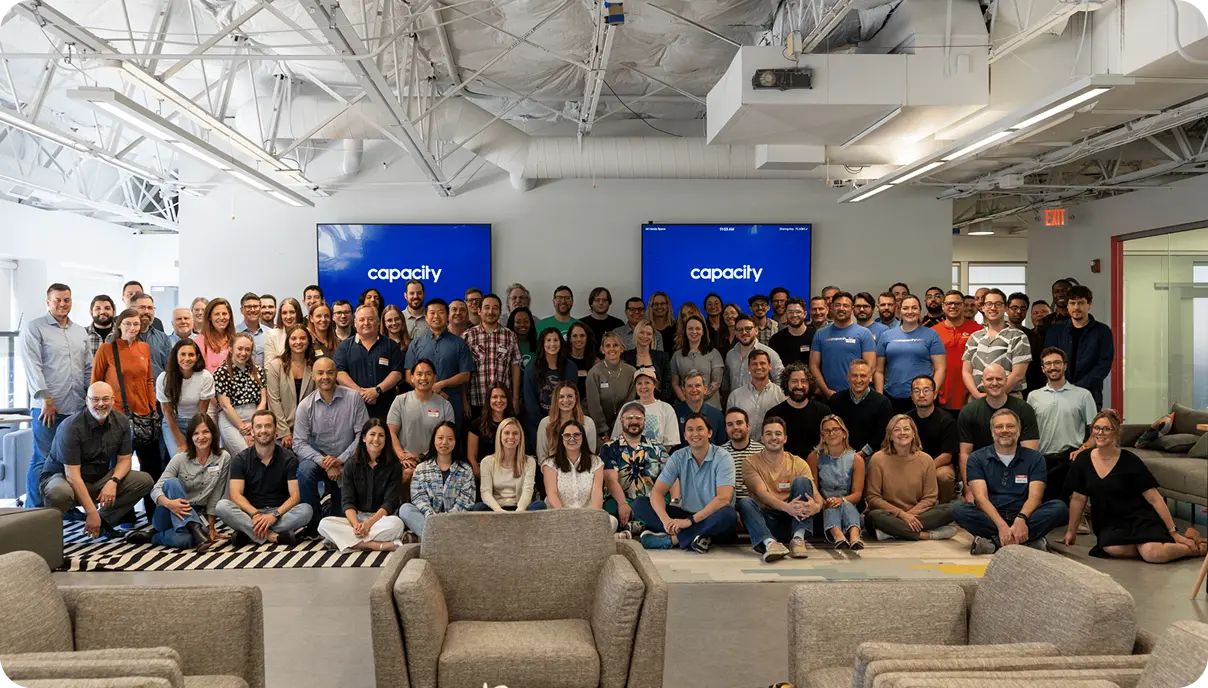Pop Quiz: What do AI, knowledge management, and a swashbuckling adventure have in common?
Answer: Just as a captain relies on their trusty compass to navigate uncharted territories, you should be looking to AI to guide you through the unexplored depths of your organization’s knowledge. AI will help you uncover hidden insights, streamline processes, and empower your team to achieve remarkable feats.
But here’s the thing: AI is not a mythical creature or a magic wand to wave around haphazardly. It’s more like having a highly skilled crew of experts by your side. And the crew is ready to decipher ancient maps and decode secret messages.
It’s estimated that 60%-73% of data collected by enterprises goes unused. But adding AI to your knowledge management can help your whole company and your customers. And then, with it you can find unknown and unexpected connections and insight.
Using AI (again, like ours and chatGPT) for enterprise knowledge management can also help you to distribute knowledge throughout your entire org to help with problem-solving and decision-making. One of the challenges of knowledge sharing is breaking down silos to connect people with the information they need. AI can address this by finding and strengthening weak ties. And that then creates a greater sense of community-based learning.
AI can also help your company stay compliant. It significantly reduces the time and effort spent on document analysis and verification. And then, when you add machine learning to existing documents, it can classify and ID key info faster and more accurately than a human ever could. That means your service team can spend less time researching compliance issues. And instead, they can focus on higher-priority customer-facing tasks.
The benefits of using AI for enterprise knowledge management
There are tons of reasons to consider adding AI to your enterprise KMS. Here are a few:

- Efficient Information Retrieval. AI systems can quickly search and find relevant info from your knowledge databases. And that saves time and effort for employees.
- Accurate and Consistent Responses. AI systems can provide consistent and accurate responses.
- Automated Knowledge Curation. AI can automatically categorize and tag knowledge assets. And that then makes it easier to organize and retrieve information.
- Continuous Learning and Improvement. Your AI models can learn from user interactions and feedback. That means they can improve their KM capabilities for your unique use cases over time.
- Reduced Training Time. Start onboarding and training using AI. AI modules can help speed up the learning process for new employees and also give them access to relevant resources from the get-go.
- Collaboration and Knowledge Sharing. Use AI to connect your employees to knowledge, best practices, and expertise across your company.
- Workflow Automation. Automate repetitive tasks involved in knowledge management. This might be things like content categorization, tagging, and updating.
- Data-Driven Insights. Get insights into knowledge usage, user behavior, and trends. This will let you make data-driven decisions to improve knowledge management practices.
- Regulatory Compliance. Your AI system can help make sure you stay compliant with your regulatory requirements. It can serve up accurate and up-to-date information and then help documentation management.
- Improved Customer Support. This is kind of our bread and butter here. AI chatbots can pull info from your knowledge base and then answer your customer questions. And they can do it without ever involving a human. (Mind. Blown.)
- Innovation and Competitive Advantage. Give your team members easy access to info. That can then inspire them to foster their creativity and promote faster development of new ideas.
21 tips to learn AI (like Capacity and chatGPT) for enterprise knowledge management
Here are 21 tips to help you learn how to use AI, like Capacity and chatGPT, for enterprise knowledge management. They’re broken down into four main sections so you can get up and running fast.
Getting Started:

- Understand AI Basics. Start learning the basic concepts of AI. Include basic knowledge of machine learning, natural language processing, and neural networks.
- Choose the Right Platform. Explore different AI platforms for knowledge management, such as Capacity AI and chatGPT. Then, choose the one that aligns with your specific needs and requirements.
- Explore Documentation and Tutorials. Dive into the documentation and tutorials provided by your AI platform to understand its features, capabilities, and best practices for knowledge management.
- Start With Small Tasks. Get rolling by assigning small and straightforward tasks to your AI system. Then, gradually expand its responsibilities as you gain confidence and experience.
- Collaborate With AI. Remember, AI is a tool you can use, not a replacement for your team. Combine its capabilities with your expertise to bolster your KM.
Maximizing Efficiency:
- Customize AI Models. If the platform allows, fine-tune or customize AI models to better suit your team’s specific requirements.
- Use Natural Language Processing. Try adding natural language processing capabilities to extract, categorize, and then summarize knowledge effectively.
- Integrate With Existing Tools. Connect your AI systems to your existing self-service tools to streamline your workflows. This might be a chatbot, CRM, or CSM.
- Ensure Data Quality. Maintain high-quality data to train and improve AI models. Regularly review and clean your knowledge database to avoid inaccuracies and outdated information.
- Add User Feedback Loops. Establish feedback loops to collect user input on AI-generated responses. Continuously check and refine the AI system based on user feedback to improve its performance.

Automate Your Work
Capacity’s enterprise AI chatbot can help:
- Answer FAQs anytime, anywhere
- Find relevant documents within seconds
- Give surveys and collect feedback
Enhancing Knowledge Management:
- Develop Domain-Specific Expertise. Train AI models with domain-specific knowledge to create more accurate and relevant responses. Continuously update the AI system with the latest industry trends and insights.
- Secure Sensitive Information. Secure your sensitive knowledge and data privacy when using AI for knowledge management. Encrypt data, add access controls, and adhere to relevant regulations.
- Promote Continuous Learning. Encourage the AI system to learn from user interactions and adapt its responses. This enables the AI to improve its knowledge management capabilities over time.
- Provide Seamless Search. Optimize your AI system to provide fast and accurate search results. This makes it easier for users to access relevant knowledge.
- Add Multilingual Support. If you need to, try adding multilingual support to your AI system. This will help you to cater to a larger, more diverse user base.
Training and Optimization:

- Track AI Performance. Track the performance of your AI system. Start by looking at metrics like response accuracy and time, CSAT, and FCR.
- Iterative Model Training. Train and fine-tune the AI models to enhance their knowledge management capabilities. Incorporate new data and feedback to improve the system’s accuracy and effectiveness.
- Add Version Control. Maintain version control for AI models and knowledge databases. This will let you track your changes and roll back if needed. Plus, it’ll make sure you’re always consistent in your knowledge management.
- Create Test Scenarios. Develop test scenarios and benchmark the AI system against real-life scenarios. This will help you track its performance and then, over time, ID areas for improvement.
- Stay Updated With AI Advancements. Keep current with the latest in AI technology and knowledge management techniques. Attend webinars and conferences. And then read relevant content to stay informed. (Psst. Stay tuned – I have a whole bunch of resources at the bottom of this post.)
- Encourage User Adoption. Get your team to use the AI knowledge base by offering training sessions, clear guidelines, and support materials. This will help them use AI effectively for knowledge management.
Remember, learning AI for enterprise knowledge management is an ongoing process. By following these tips, you can build a strong foundation. And you can also max out your efficiency and boost your KM practices.
Resources based on your learning style
So, now you know how to start using AI (like Capacity and chatGPT) for enterprise knowledge management to unlock hidden insights, streamline processes, and provide your customers with lightning-fast resolutions. But learning how to use AI effectively can be daunting. To help you get started, here are some helpful resources. We’ve tailored them to different learning styles so you can make the most out of your knowledge management system.
1. Online Courses:
- Coursera: “AI for Everyone” by deeplearning.ai
- edX: “Artificial Intelligence (AI) for Business” by Columbia University
- Udemy: “AI for Business Leaders” by Richard Maxwell and Leighanne Maxwell
2. Books:
- “AI Superpowers: China, Silicon Valley, and the New World Order” by Kai-Fu Lee
- “Artificial Intelligence: A Modern Approach” by Stuart Russell and Peter Norvig
- “Prediction Machines: The Simple Economics of Artificial Intelligence” by Ajay Agrawal, Joshua Gans, and Avi Goldfarb
3. Video Tutorials and Lectures:
4. Online Communities and Forums:
- Kaggle (kaggle.com): A platform for data science and machine learning enthusiasts with competitions and collaborative projects.
- Stack Exchange: Platforms like Artificial Intelligence Stack Exchange (ai.stackexchange.com) or Data Science Stack Exchange (datascience.stackexchange.com) can provide valuable insights through community-driven discussions.
5. Podcasts:
- “Data Skeptic” by Kyle Polich: Discusses concepts in data science, AI, and machine learning.
- “The AI Alignment Podcast” by Lucas Perry: Explores the intersection of AI, ethics, and society.
6. Hands-on Projects and Practice:
- Kaggle competitions and datasets: Participate in real-world challenges and build practical experience.
- TensorFlow and PyTorch tutorials: Official documentation and online tutorials provide hands-on learning experiences with popular AI frameworks.
7. Professional Associations and Events:
- Association for the Advancement of Artificial Intelligence (AAAI): Offers conferences, workshops, and publications.
- International Joint Conference on Artificial Intelligence (IJCAI): Provides opportunities for members to engage with the latest research.
Want to learn more about using AI in your enterprise knowledge management? Schedule a demo or sign up to try Capacity for free now!













































